
Poker Strategy
Welcome to our Poker Strategy Articles section. Poker is a game of strategy. Anyone that tells you differently is ignorant or a losing poker player. If you study the game and the strategies, you will understand the tactics to becoming a winning player, improve your game, and ultimately win money. We at ITH have accumulated the most comprehensive collection of texas holdem articles to help you learn, gain confidence and most importantly WIN.
We incorporate strategiy discussions on everything from playing hands to winning the mental game. Peruse the sub-categories here or browse all our strategy articles below.
For more poker strategy content, visit our Poker Forum Strategy sections and join in the discussions!


Playing With the Initiative After the Flop in PLO
the dynamics of post-flop play in Pot-Limit Omaha when a player has taken the preflop initiative, emphasizing the importance of balancing continuation-betting with taking free cards based on the number of players in the pot and the trickiness of opponents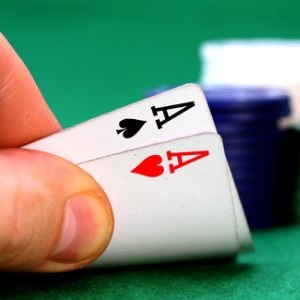
Weaving Through 9,999 Opponents
author's experience in a $100K Holiday freeroll poker tournament at Full Tilt Poker, detailing the strategies employed, challenges faced, and the unexpected luck that led to a triumphant win among 10,000 participants
Omaha Hi-Lo Odds – Put Tilt in Perspective
the importance of aligning poker expectations with statistical realities, particularly in Omaha Hi-Lo, discussing how players often tilt due to unrealistic hopes, and providing insights into the probabilities of certain hand outcomes during the game to help players make informed decisions and avoid costly mistakes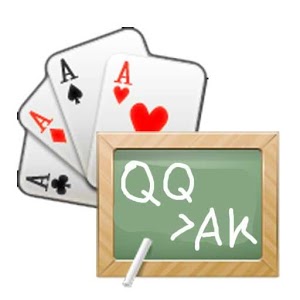
Limit Hold’em Tips : The Secrets of Success
evolution of online poker and the author's personal journey, emphasizing the significance of observational and categorization skills in the game, the pitfalls of multitabling without these skills, and the importance of understanding table dynamics
The Reverse Float
the concept of "reverse float" in poker, which refers to floating from an out-of-position stance, highlighting its risks and offering guidelines for its execution
Following Through in PLO
the importance of maintaining betting momentum in pot-limit Omaha, suggesting that once players initiate a bet, they should continue to play as if they have the strongest hand until an opponent challenges them
Staying in School and Poker as a Career
the importance of completing one's education before considering poker as a full-time career, highlighting the risks and challenges of professional poker, the evolving nature of the game, and the potential long-term implications of a career gap on one's résumé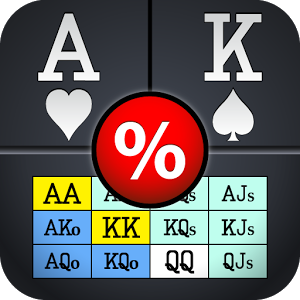
C-Bet Frequency in PLO
strategy of continuation betting in pot-limit Omaha (PLO) poker, emphasizing that the frequency of such bets should be tailored to the opponent's tendencies
The Realities of a Re-buy Tournament
insights into the strategies and considerations for playing in Re-buy and Add-on (R&A) poker tournaments, emphasizing the importance of managing one's bankroll, understanding the dynamics of the initial re-buy phase, and adapting to the aggressive playstyle often seen in these tournaments
Omaha Hi-Lo Starting Hand Strategy Look-Fors
strategies for selecting and playing specific starting hands in Omaha Hi-Lo poker, emphasizing the importance of card coordination, the value of the ace as a key card, and the considerations for both high and low hand possibilities
Winning Preflop in Omaha Hi-Lo
the importance of selective hand choice in Omaha Hi-Lo poker, highlighting that many beginners' primary mistake is playing too many starting hands, and underscores the value of well-coordinated hands that can win in both high and low directions, ultimately stressing that a player's edge largely comes from superior preflop decisions compared to opponents
Is Poker Gambling or Skill?
the longstanding debate regarding poker's classification, examining whether it's predominantly a game of chance or skill, and highlights that while poker involves elements of both luck and strategy, it's the blend of these factors that makes it unique, challenging the traditional definitions of gambling
Why Every Poker Player is Unlucky
the inherent role of luck in poker, arguing that every player experiences both good and bad luck in various forms, and emphasizes the importance of recognizing these nuances, avoiding the trap of selective memory, and focusing on making informed decisions rather than dwelling on perceived injustices in the game
Small Buy-in Tournaments on the Internet
contrasts the accessibility and advantages of online No-Limit Hold’em tournaments with live tournaments, highlighting the diverse opportunities online platforms offer for players of varying skill levels and bankroll
Seat Selection in PLO
the importance of choosing the right seat in Pot-Limit Omaha poker, highlighting the strategic advantage of having tight players on one's left and aggressive players or those with bigger stacks on the right, to optimize control and play with positional advantage
Three-Betting Preflop
strategic nuances of three-betting with marginal hands in poker, using hand examples from three different authors to illustrate the thought processes and considerations behind such plays
PLO Practice-Hand Quiz No. 2
Raising preflop, the combo float, and value-betting the river It's a $1-$2 blinds game, $5 to bring in.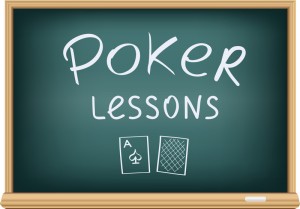
Schooling – Playing in Loose Poker Games
the concept of "schooling" in poker, where a group of poor players, referred to as "fish," collectively protect each other in a game, making it challenging for skilled players to win
Poker Bankroll Management : Will I Go Broke?
intricacies of managing a poker bankroll, emphasizing the importance of making informed decisions, understanding variance and earn rate, and adopting strategies to minimize the risk of depleting one's bankroll, while also discussing the balance between short-term variance and long-term earn rate in determining optimal play and bankroll strategies
Winning the PokerStars Nightly 100K
the author's experience and strategy in navigating the PokerStars Nightly Hundred Grand tournament, highlighting key hands played, decisions made, and the challenges faced during the heads-up battle
Poker Psychology : Rationalizing Decisions
the concept of rationalizing in poker, explaining how players often justify their decisions based on emotions or impulses rather than logical reasoning, emphasizing the importance of making decisions based on long-term expectations and the dangers of relying solely on instinct
NFL Betting Tips – One More for the Road
advice on NFL betting, emphasizing the importance of understanding subtle edges, recommending specific betting strategies like six-point teasers on home teams, and highlighting the significance of line variations, and stressing the need to join multiple betting sites to get the best odds and take advantage of bonuses
Poker Luck and Skill : Variance or Bad Play?
the intertwined roles of luck and skill in poker, emphasizing that both factors contribute to a player's results
The Power of the Big Draw
the strength and strategic advantages of having big drawing hands in Omaha poker, particularly in deep-stack situations, explaining how these hands can dominate the game dynamics, allow for aggressive betting without fear of being priced out, and offer significant implied value when they hit
PLO Quiz 3
A low SPR situation - Excerpt from Jeff’s book, Advanced Pot-Limit Omaha Volume II: LAG Play and The Short-Handed Workbook.
Poker Bankroll Strategy : Wipeout
the challenging reality that poker players might face when they lose their entire bankroll, emphasizing the importance of understanding the reasons behind such losses, whether it's due to skill level, tilt, poor bankroll management, or sheer bad luck
PLO Quiz 2
pot-limit Omaha poker scenarios set in a game at Excalibur in Las Vegas, offering readers multiple-choice questions on the best course of action in each situation
Las Vegas Pot-Limit Omaha
introduction of a small-stakes pot-limit Omaha (PLO) game at The Venetian poker room in Las Vegas, detailing the specific structure of the game, the reasons for choosing The Venetian as the venue, and the game's growing popularity among players
Starting Hand Chart
detailed hand charts to guide players on how to optimally play their starting hands in Texas Holdem, offering specific strategies based on one's position at the table and emphasizing the significance of making informed preflop decisions to gain an edge over opponents
Some Mistakes Down Under
author's experiences and strategic errors during poker tournaments in Melbourne, particularly during the Aussie Millions event, emphasizing the importance of decision-making, pot odds, and risk assessment, while also highlighting the vibrant poker scene and unique personalities in the Australian and New Zealand poker community
Beating Fish in Limit Holdem
strategies on how to effectively play against three types of inexperienced poker players: the overaggressive, the limper, and the predictable, offering insights on recognizing and adapting to each type to maximize profit opportunities in higher stakes games
What do you do when you know you are beat?
discusses the strategic depth of poker, emphasizing the importance of reading opponents and understanding when to exploit perceived weaknesses, even when you believe your hand is inferior
New Zealand Blues
the author's experience during a two-week vacation to New Zealand, where he participated in the New Zealand Poker Championships
Choosing a Poker Site : Decision, Decisions, Decisions
the various considerations and decisions a poker player should make before starting a game, including selecting the right poker site, game type, table format, betting structure, and even factors like the time of day to play
Quiz: Playing with the Initiative, Combination-Call, and Value-Betting River
Playing with the initiative, making a combination-call, and value-betting the river It's a five-handed 50¢-$1 pot-limit Omaha game online (six-max).
Why Do Players Go on Tilt?
the psychological and emotional reasons behind poker players going on tilt, emphasizing that while bad beats and losses can trigger tilt, other factors like emotions, fatigue, boredom, and even alcohol can also contribute
Winning the Full Tilt Poker $750,000 Event
the author's experience and strategies in winning the Full Tilt Poker tournament, emphasizing the importance of "restealing" and highlighting specific hands that played a crucial role in their victory
Poker Tips for Beginners : Three Decisions that are Never Wrong
guidance on three fundamental decisions in poker that are almost always correct: not revealing your cards unless required, refraining from engaging in table chat to avoid giving away information, and consistently playing strong hands aggressively
Positional Advantage in Pot-Limit Omaha
the inherent advantage of position in poker, emphasizing that the ambiguity of a bet from a late position, such as the button, can naturally deceive opponents, making them more likely to make mistakes, especially when they perceive the bet as a potential steal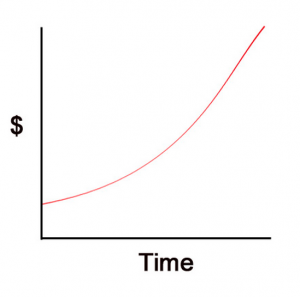
Poker Tracker Tips : Tracking Your Progress as a Beginner
offers guidance for novice Texas Hold'em players on utilizing PokerTracker software to monitor and enhance their gameplay
Pot-Limit Omaha Hand Quiz 3
insights into post-flop strategies in Pot-Limit Omaha, focusing on the importance of understanding opponent behavior, the value of the positional advantage, and the effectiveness of bluff-raising when faced with potential air bets
Skills Learned Playing Short-Handed Limit Holdem
the unique skills and strategies required for short-handed limit hold'em, highlighting the importance of player categorization, adaptability, and aggression, while also discussing the benefits of playing in such settings, including the ability to better read opponents and capitalize on their mistakes
Profile of a Typical Omaha Hi-Lo Fish
common characteristics of inexperienced Omaha Hi-Lo players, highlighting their tendencies to play too loosely, misconceptions about hand quality and pot dynamics, and their lack of adaptability to the changing value of hands post-flop, ultimately providing insights into how seasoned players can exploit these weaknesses
6 Reasons to Start Playing Omaha Hi Lo
the advantages of playing Pot Limit Omaha Hi Lo, highlighting its simplicity compared to other poker games, the opportunity to beat loose games at low limits, its lower variance, the excitement it offers, its suitability for bonus chasers, and how it can expand a player's poker horizons
Why Pot-Limit Omaha Games Must Get Smaller
the importance of structuring smaller-stakes pot-limit Omaha (PLO) games to ensure the game's growth, highlighting the challenges players face when overplaying their bankrolls and the need for sustainable PLO games that protect players from going broke
Pot-Limit Omaha Hand Quiz
Playing top two pair, and the nut-flush draw - Here are a couple of hands from a $2-$5 game at The Venetian in Las Vegas.
Shorthanded Pot-Limit Omaha
common mistakes players make in shorthanded pot-limit Omaha games, such as defending blinds too liberally, making large preflop raises from out of position, and not being aggressive enough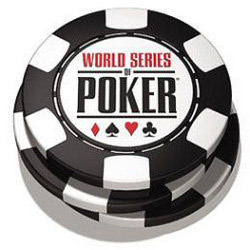
AP Newswire May 24, 2025: Joshua Hilger takes home the 2025 WSOP
Joshua Hilger takes home the 2025 WSOP - just a fun hypothetical folks!
One Year as a Professional Poker Player
leaving a traditional office job to becoming a full-time poker player, detailing the challenges, financial ups and downs, lessons learned, and the personal adjustments required for this unconventional career
Poker Psychology : Logical Fallacies
common logical fallacies that poker players often fall victim to, emphasizing the importance of clear, logical thinking for success at the poker table and warning against making decisions based on flawed reasoning or misconceptions
Poker Pitfalls Resulting From a Faulty Mindset
while technical skills in poker are essential, many players fail to achieve success due to mindset issues such as not accepting the realities of poker, being short-term focused, playing with fear, letting ego interfere, and not continually improving their game
Using Ranges to Make Better Decisions
introduces the concept of "ranges" in poker, explaining how players can assign a set of potential hands to their opponents based on observed actions, and then refine these ranges as the hand progresses
Poker Stop Losses : When Should I Stop Playing
reasons and circumstances under which poker players should consider ending their gaming sessions, emphasizing that the primary reasons to quit are either not playing at one's best or being in a game that can't be beaten
Fixing World Series of Poker Structures for PLO
discusses the disparities in starting stack depths between pot-limit Omaha (PLO) and no-limit hold'em (NLH) tournaments at the World Series of Poker, arguing that PLO tournaments should have deeper starting stacks to be comparable to their NLH counterparts
Pot-Limit Omaha: The Bankroll Schedule
the importance of proper bankroll management in pot-limit Omaha (PLO), highlighting the game's inherent volatility and the need for a larger bankroll compared to no-limit hold'em, and provides a detailed bankroll schedule for various PLO games
Am I Delusional?
author's poker strategy after bluffing off 125 big blinds, analyzing the hand in detail, and seeking feedback from the poker community to determine if the play was justified or a result of delusional thinking
Selecting Good Poker Tables : Finding the Best Fish
strategies for identifying poker tables with inexperienced players, emphasizing the importance of observing player behaviors, usernames, and other indicators to maximize profit potential and exploit weaknesses in opponents' gameplay
The Journey : Stages of Poker Development
the various stages a poker player goes through in their journey, from being a complete beginner to achieving mastery, emphasizing the importance of continuous learning, self-awareness, and the drive to improve
Structuring Sustainable Small-Stakes
guidelines on how to structure a sustainable small-stakes pot-limit Omaha (PLO) game, emphasizing the importance of setting a maximum buy-in, avoiding straddles, and ensuring that games are played with deep stacks to prevent short-stacking
Automated Poker
the transformative impact of automated shufflers and electronic poker tables, such as PokerPro, on the live poker experience, emphasizing their ability to speed up the game, enhance player experience, and merge the benefits of online and live poker
Poker Tilt Tips : Your Guilty Conscience
psychological aspects of poker tilt, likening it to the conflicting voices of temptation and reason, as portrayed in Eminem's song "Guilty Conscience"
Limit Hold’em Quiz
Playing the Nuts Most players love to discuss hands when the value of a hand is not very clear.
The Many Faces of Poker Tilt
various forms of poker tilt, emphasizing its psychological aspects and offering strategies to recognize and combat this emotional state that can adversely affect a player's game
Working in Your Underwear: The Pitfalls of Comfort
the potential pitfalls of becoming too comfortable while playing online poker, emphasizing the importance of maintaining a disciplined posture and behavior to avoid developing bad habits that could be detrimental in live games, and offers strategies to ensure one remains engaged and alert during online sessions
Variable-Ratio Reinforcement
psychological concept of variable-ratio reinforcement, explaining how it's used in gambling scenarios like slot machines to regulate player behavior, and hints at its application in pot-limit Omaha poker, particularly in relation to continuation-betting strategies
PokerTek, Excalibur, and the PLO Revolution
the introduction of small-stakes pot-limit Omaha games on PokerPro electronic tables at the Excalibur Hotel and Casino in Las Vegas, emphasizing the advantages of electronic tables in facilitating smaller pot-limit Omaha games
The Complete Guide to Playing Poker Maniacs
strategies and tips for playing poker against aggressive players, often referred to as "poker maniacs," emphasizing the importance of patience, position, and hand selection
Draw Equity vs Float Equity – Part II
nuances of float equity in poker, contrasting it with draw equity, and underscores how float equity, derived from fold equity and opponent information, can have significant value in certain game situations, but its effectiveness is highly contingent on the playing style of opponents
